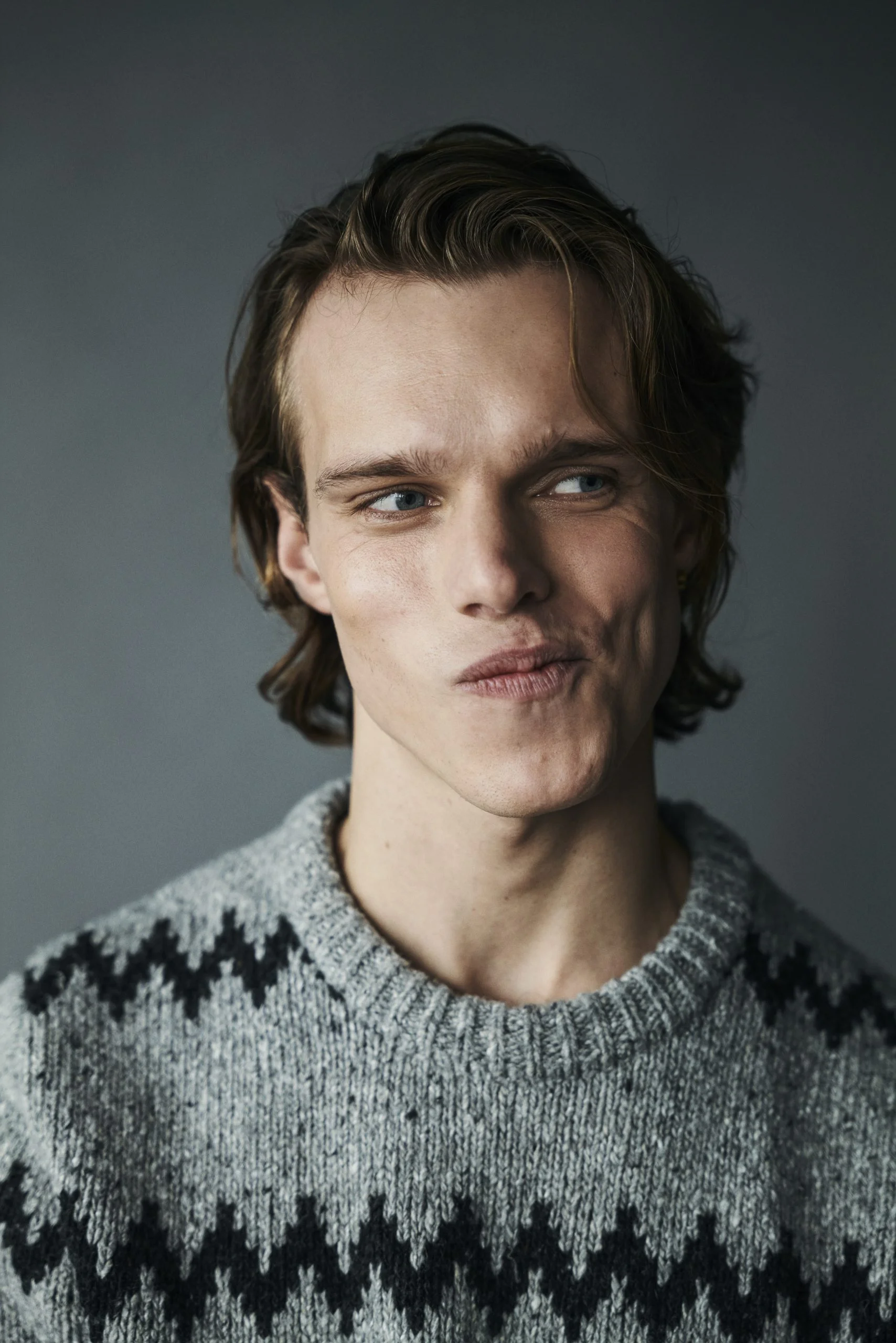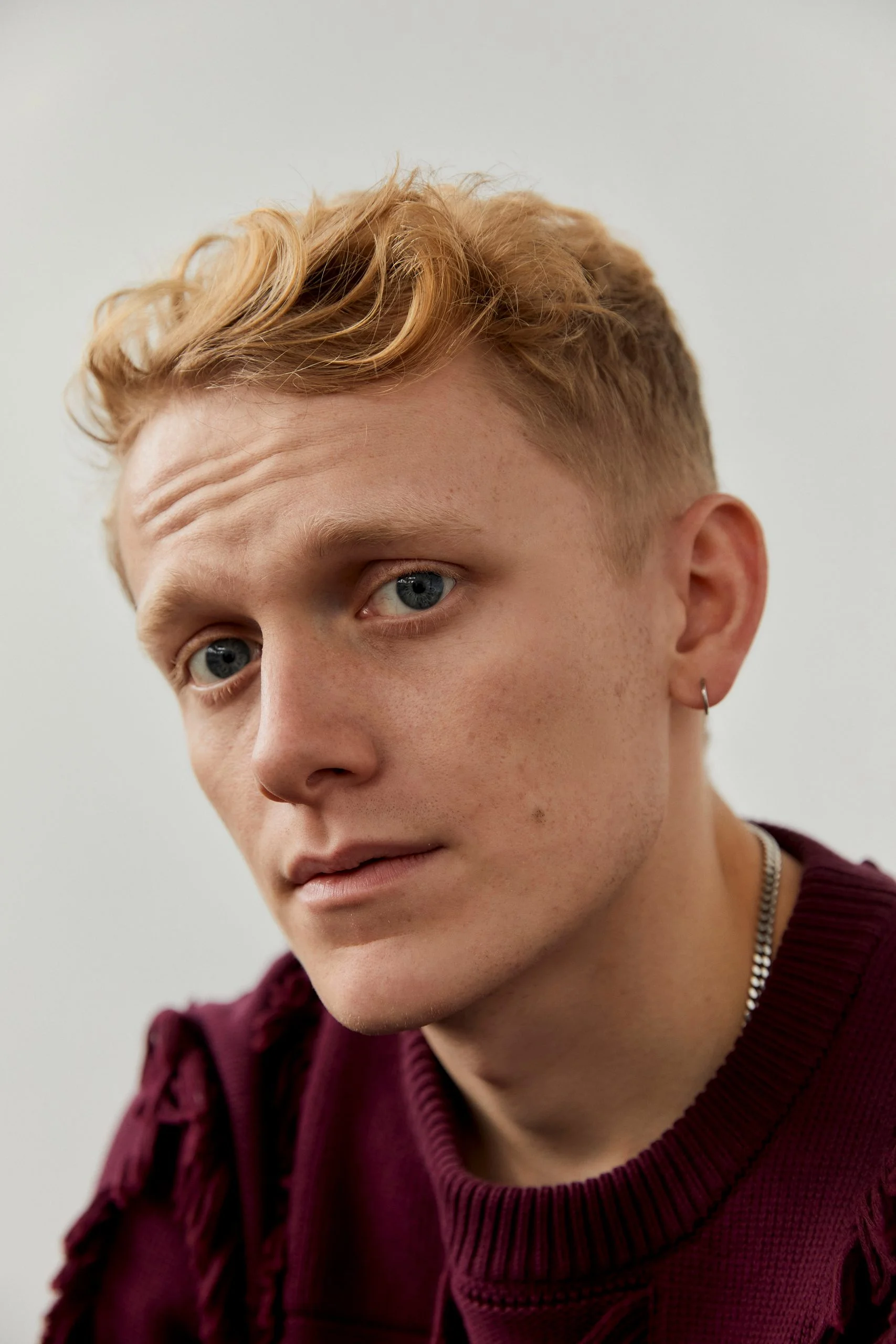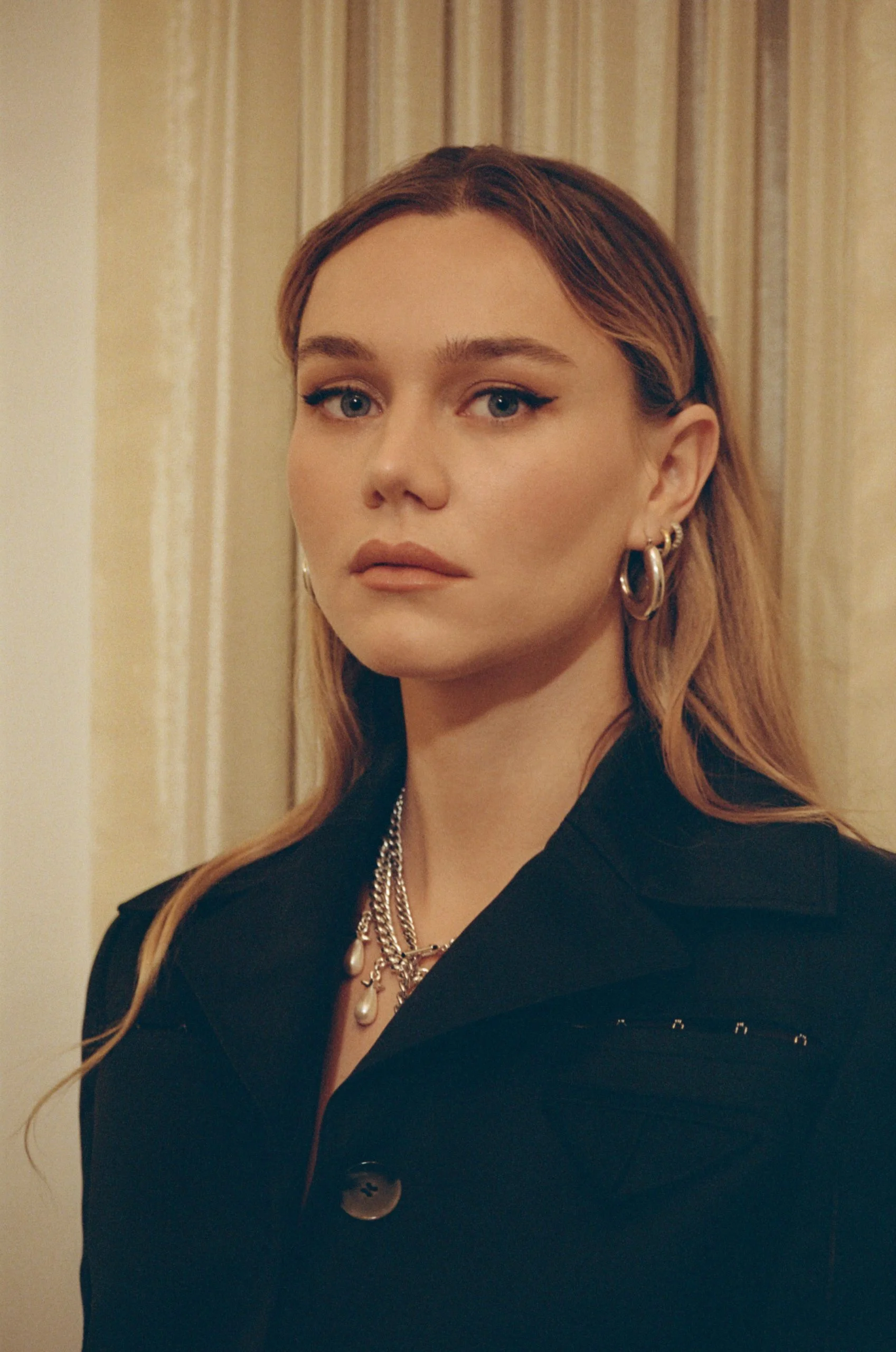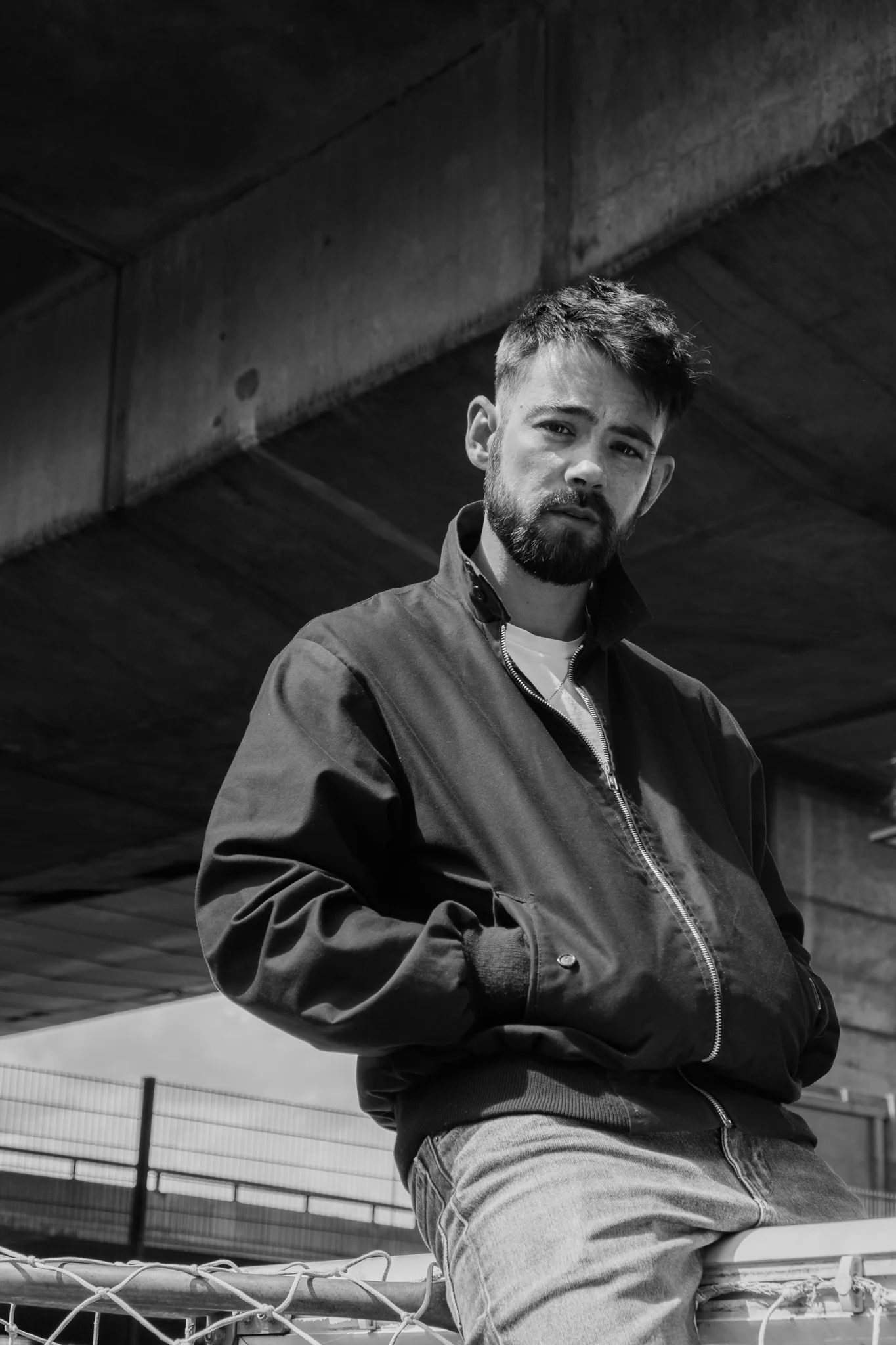
Jack McMullen
Liverpool actor Jack McMullen always aims to portray characters that are entirely different than ones he’s played before & he does just that in his new role as a prison inmate in BBC’s gripping new drama Time.
When you think of a modern crime drama, it’s likely you first think of lawyers & courtrooms or detectives & crime scenes. In BBC’s new crime drama Time, viewers get a glimpse of an environment not normally depicted in the genre: life inside of a British prison. Told in 3 parts, Time stars Sean Bean and Stephen Graham, with the former playing a new inmate in prison for the first time and the latter portraying a prison officer who is navigating his moral compass while on the job.
After starring in soaps, a football comedy, and as a crew chief in Ford v Ferrari, a role as a prison inmate might not seem like the most obvious choice, but it is to an actor like Jack — someone who prides himself on choosing roles that are the exact opposite of who he has played before. In Time, McMullen plays Daniel with a combination of grit & grace; Jack showcases the emotional journey Daniel has been on since he first committed his crime up to the time he’s spent in the prison system.
In conversation with 1883, Jack McMullen speaks about his decades-long career, playing opposite Sean Bean and Stephen Graham, and what he’s looking forward to most this year.
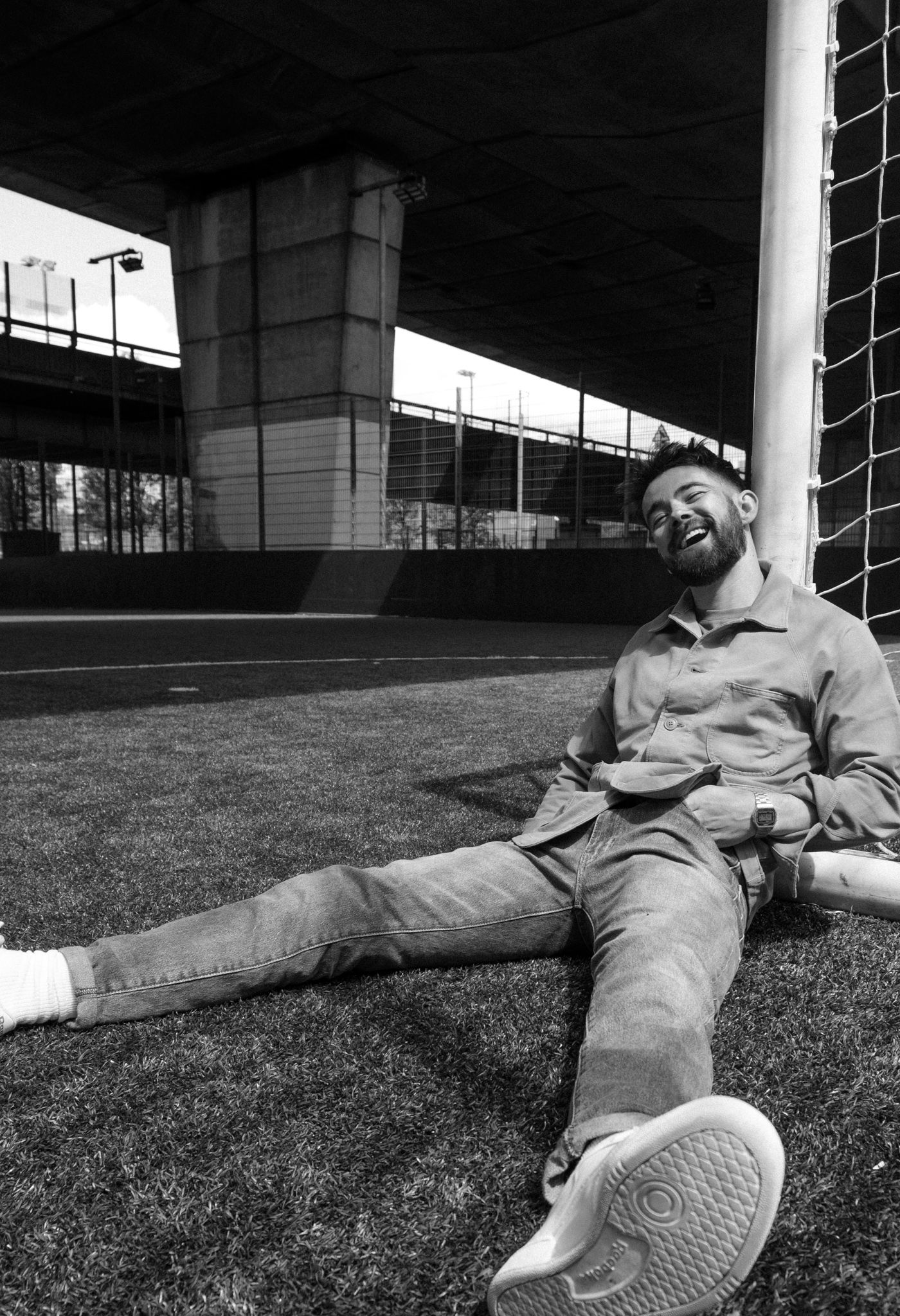
Your first credited role was 20 years ago in 2001. When you look back at your work, how would you describe the way you’ve changed as an actor from then to now?
God, I was very young when I started back then. I didn’t have any formal training so I always had this feeling of winging it. During my teens I was lucky enough to work non-stop, from Brookside to Waterloo Road. Those shows were my training; I gained lots of practical experience like memorizing lines, hitting marks, and all of the technical bits. All of those things started to become second nature quite quickly at a young age. Throughout my 20s I started doing much more theatre work and I approach that differently, which helps me gain other new skills I didn’t have before. In theatre, I’ve had the opportunity to play completely different characters from the ones I’ve played on-screen, which has been a real learning curve for me as well because I always feel like I come out of those projects in a better place. Doing Ford v Ferrari was an opportunity to play a certain type of character I never had the chance to play before and was a huge stepping stone for me as an actor. It’s nice to look back and see my journey so far.
You’re incredibly multi-dimensional with your work — you’ve starred in everything from Waterloo Road to Ford v Ferrari and several stage productions as well. Is there something that typically draws you to a project, whether it’s the script, the character, who is attached, or something else?
It’s a scale, to be honest. Something like Ford v Ferrari was an absolute no-brainer for me, I grew up watching Matt Damon and Christian Bale. Good Will Hunting in particular was one of the first films I fell in love with as a young adult and I watched it over and over. To then be on set with Matt, and Christian Bale as well, was phenomenal. All of the things you mentioned are important and each project is different, so one thing could be more of a draw than the other. You have to consider everything. I’m keen not to explore the same thing over and over again because it’s very easy to fall into a type and I want to avoid that.

All of your projects have been so different and Time is no different. For those who haven’t heard of it, can you tell me a bit about it?
It’s a prison drama that follows Mark Compton, played by Sean Bean, a man who goes into prison for the first time. I feel like he represents everyone who has never been to jail before and is confronted with this volatile, complex environment without a handbook on how to deal with it. The first episode is quite shocking and throws you in at the deep end. We also see the perspective of Stephen Graham who plays Eric McNally, a prison guard who always tries to do the right thing but his ethical lines are blurred and his moral compass is tested at some parts. It’s not something I’ve personally seen before on TV, I can’t remember ever seeing a show set in a UK prison that feels true to the life of both sides.
The dynamic between the two characters is incredible to watch, too.
Yeah, Stephen said something earlier today and described them as two ordinary men thrown into extraordinary circumstances and I think everybody will be able to relate to and feel for them. It’s really interesting to see these different relationships and how they are confronted while in prison. It’s an insight into the prisoners grief — they have their freedom taken away from them and they are learning how to cope with that. Daniel is very much still in denial and is offered the very thing Mark wants and he doesn’t want to take it, which was an interesting dynamic to play out.

Yeah, I was going to mention Daniel sharing a cell with Mark and you watch Mark guide Daniel. What was it like working through those scenes and what was it like working so closely with Sean Bean?
Yeah, without asserting himself in any way he helps Daniel. He’s non-judgemental as well; there’s a scene where my character is doing drugs and he understands rather than judging Daniel. To work with Sean was just amazing, it was a real pleasure.
We’ve briefly touched on it already, but this is different from a lot of crime dramas because typically they are mostly outside of prison but Time gives us an insight into what it’s like inside. What was it like to explore those themes? Did you work with those involved in the prison system?
Yeah, we had actual prison officers and specific documentaries shared with us which were all very eye-opening. As you just touched upon there, we have these crime stories and when someone goes to prison, that’s the ending. We don’t see what happens to their lives when they go into prison. The general public doesn’t know an awful lot about what goes on. It’s not a documentary by any stretch, but it does help shine a light on what it’s like and the mental health epidemic happening to those in prisons.

It was filmed in Liverpool, where both you and your co-star Stephen Graham are from! What was it like working and filming in a place where you grew up?
It was! It was lovely, it’s always good to be home.
I know you’re going to be in the sequel to the acclaimed film The Souvenir by Joanna Hogg. I’m sure you can’t talk much about what happens in the film, but I would like to chat with you about working on a film where it’s most improvised and you don’t receive a script to know what happens. How do you approach that as an actor?
I’ve never had the opportunity to work like that and it’s completely refreshing and eye-opening for me. Joanna’s process is completely different; there’s no script and she briefly explains to you how the scene is going to go and you improvise it. Weirdly enough, she allows the luxury for you to accidentally say the line she wants without you even realizing it. On other sets, you can do a million takes of a scene and Joanna’s process is so different in comparison. You can’t overthink it — you have to be completely open. Apart from the scenes I’m in, I have no idea what happens which is both hilarious and great.
Going in not knowing anything must be so fun because you have no clue and you’re only focusing on your character and the scene rather than thinking about the entire plot and how it ends.
Yeah, I haven’t seen another director work that way. I don’t know if I could be on a project like that if it was just any director but with Joanna you jump at the chance to work with her based on her previous work.
Lastly, I know you’re busy filming right now so I’m assuming you can’t talk much about upcoming projects, but what else are you looking forward to this year?
Hugging my nan! I’m looking forward to that. She’s in Liverpool and had both vaccines so hopefully I’ll be able to give her a cuddle soon — it’s long overdue, but it’s coming!
Time is airing on BBC One and the full series is available now on BBC iPlayer.
Interview by Kelsey Barnes
Photography by John Armour



